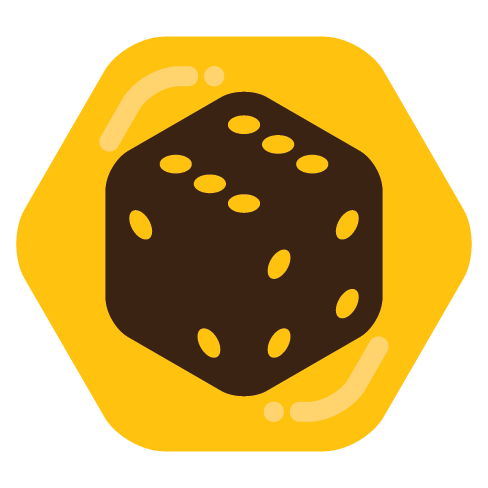Out of 250 rolls 27 were 1’s. A roughly 11% chance of rolling a 1 on this die.
For those curious about the rest:
Here's the stats for all 17
2 of my DnD group when they found out about my little project wanted me to check their favorite D20’s as well.
Those are being tested this evening and I’m excited to see the results.
Any tumbled die like this (identifiable by the polished surfaces and the smooth edges) gets deformed in the tumbling process. The solution is one of three things:
- Accept this as your lot in life
- Look for precision dice
- Buy enough tumbled dice that you’re grabbing a random die that is deformed differently from all the other deformed dice every time from a pool at the center of the table
NGL, I low-key dig how nerdy you are about your dice. People being stupid happy about their hobbies brings me a hint of joy.
Are you hand rolling in a tray? Dice tower?
Dice tower
Specifically this one
It’s got a spiral staircase from top to bottom for the dice to bounce around
How about data entry? Paper, text file, or camera and image recog?
I looked at the results of each roll and then entered it directly into a spreadsheet
The stat cards are generated straight from the data
Using some formulas in the spreadsheet I tell it to see which numbers come up in a range of cells, then count each instance of the numbers, then order the results in a table from most common to least common.
The averages are generated in a similar way. Basically I tell the spreadsheet to add the number of cells that have data in them in a specific range together, then have it divide by the number of faces on the die (the magic number here bugs me but I’ll let it slide for now), and then it puts the result into a cell.
Put that traitor in the microwave … Baked Potato.
If you want to see a cool (as cool as statistics can be) experiment about this check this out
Unfortunately I’m unable to open the link, it seems broken
Huh weird. Maybe because it is not https?
The site does not work with https but your link actually links to https even though visually it dies not, I guess.
http://www.markfickett.com/stuff/artPage.php?id=389
Also maybe the browsers are trying https first anyway and because the server does respond ,(but wrongly) it ignores/does no try the non-s.
Edit: weird, why is ff forcing the s even though it’s actually not there in the link.
To acces the site you havs to open the link, then edit the url and delete the s in https://
Yeah, that is odd. I tried to edit the comment and it shows http.








